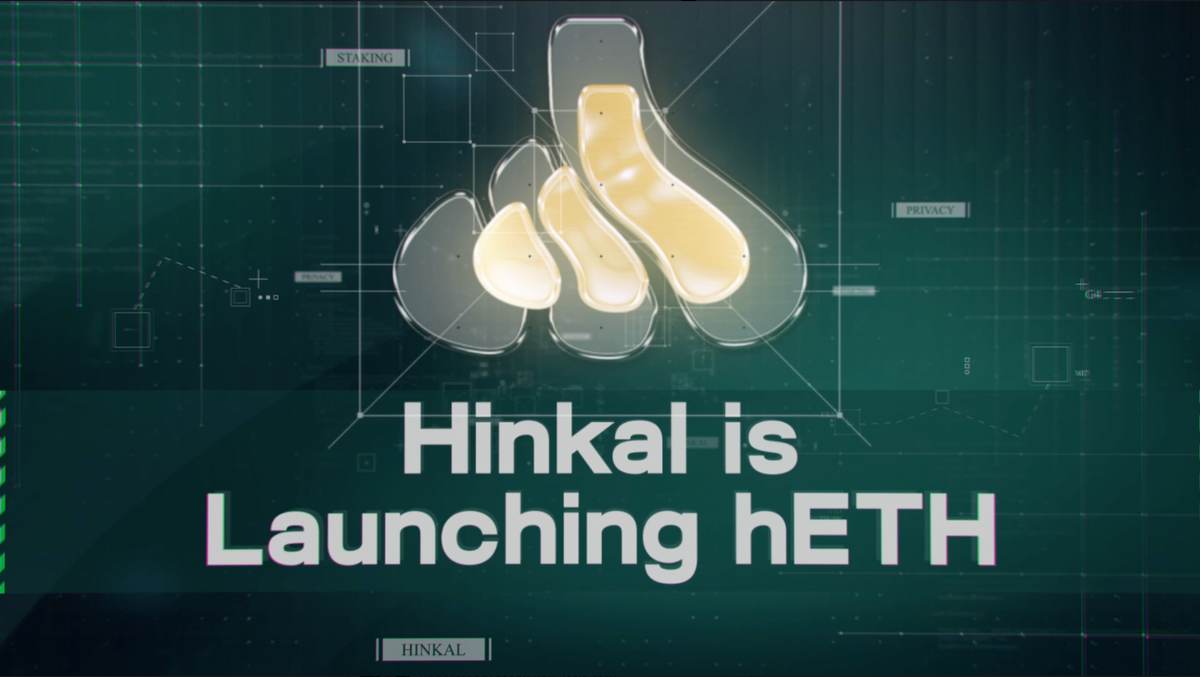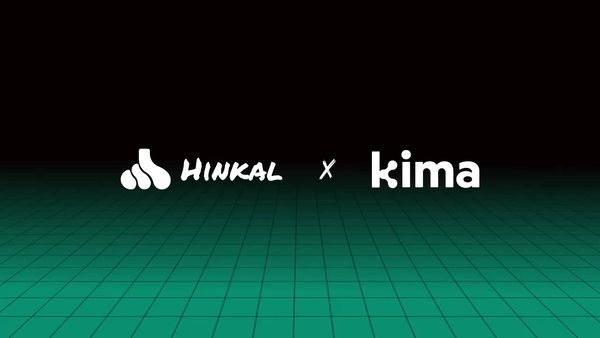Hinkal Introduces hETH - First ever ETH liquid privacy token

Hinkal is excited to announce its dApp V.2 release, introducing Cross-Chain Shared Privacy and hETH 一 the first ever ETH liquid privacy token. This development presents a new yield primitive, allowing stakers to stay liquid while earning yield for providing privacy.
Hinkal’s Shared Privacy is a win-win ecosystem where Stakers receive rewards (yield) for contributing assets to the Shielded Pool, and Users benefit from the privacy of transactions, enabled by the Shielded Pool. The crucial thing for stakers is that the tokens will be staked on the Hinkal Smart Contract without slashing conditions.
Imagine being able to transact and store assets on-chain without revealing your identity. Shielded pools make this possible through a set of smart contracts that enable anonymous transactions. However, there's a catch: users who contribute to the anonymity set often don't receive adequate incentives for their participation.
There are three key issues with Shielded Pools:
- Lack of Direct Compensation: Users don't receive direct rewards for enhancing the anonymity set, leading to low participation.
- Free-Loader Problem: Some users benefit from the anonymity provided by others without contributing, which can diminish overall privacy.
- Limited Yield Opportunities: Participating in Privacy Pools limits access to yield opportunities across DeFi, reducing capital efficiency.
When presenting Hinkal V.2 at BASS in Stanford, CTO & Co-Founder of Hinkal Nika Koreli introduced a novel solution to all these challenges through the concept of Anonymity Staking. By allowing users to stake their Ethereum into Shielded Pool and receive hETH in return, Hinkal effectively aligns individual incentives with the public good of privacy for everyone.
hETH solves the three problems mentioned above by introducing a liquid privacy token that allows permissionless participation in Shielded Pool. Users who don't need privacy can earn yield from private transactions, increasing the size of the Shielded Pool and enhancing overall privacy.
Starting with liquifying ETH which is the base position for the majority of wallets, Hinkal liquifies ETH and creates liquid private ETH by issuing hETH. Holders of hETH can then use it for trading, lending, or as collateral across DeFi applications.
How does it work?
Staking on Hinkal is designed to extend privacy to Hinkal’s users. The flow of staking and receiving hETH plays a crucial role in enabling shared privacy. Stakers and depositors must be indistinguishable on-chain. This is how it is achieved:
- Multiple users stake ETH at different times throughout the day.
- They supply a wallet address that is different from which they staked.
- At the same time every day, Stakers receive hETH in their recipient wallets.
And there are two reasons for that. First of all, if stakers received hETH immediately after staking, they would be instantly distinguished as stakers. Secondly, if stakers received their hETH in the original wallet, again they would be distinguished as stakers.
As for the APR mechanics, hETH equals staked ETH plus accrued yield. hTokens appreciate in value as underlying collateral increases, therefore stakers withdraw more ETH than initially staked due to generated yield. Compounding interest is automatically reinvested.
Another benefit of Anonymity Staking on Hinkal is that stakers can put in any amount of ETH with no lock-up period and have full custody over the underlying asset. For staking ETH on Hinkal, stakers will get 2 kinds of rewards: Staking APR + Hinkal Points.
We've also announced a partnership with Symbiotic, making Hinkal part of the shared economic security of the Symbiotic ecosystem. This partnership will enable hETH holders to restake their assets via a Symbiotic Vault and receive Symbiotic points on top of their hETH yield.
Follow our social media to get more daily updates on the upcoming release!




